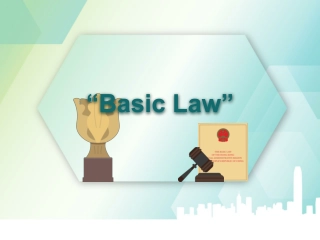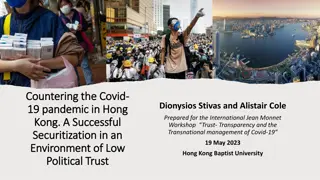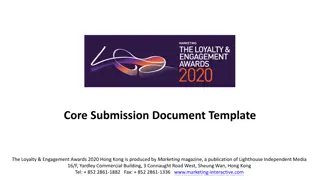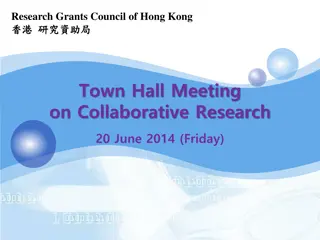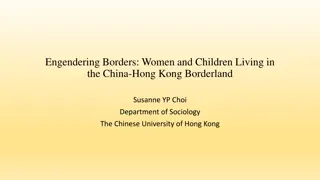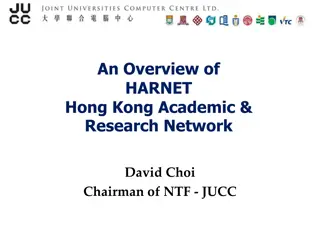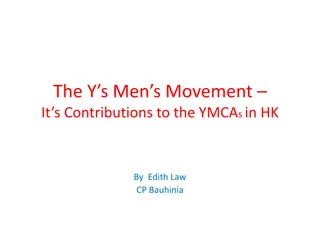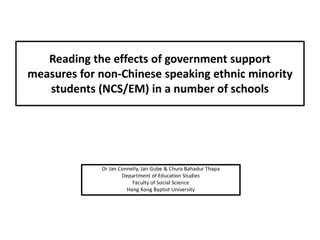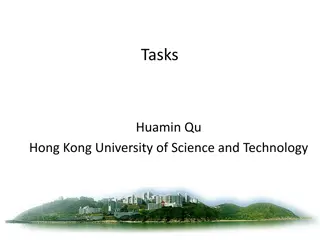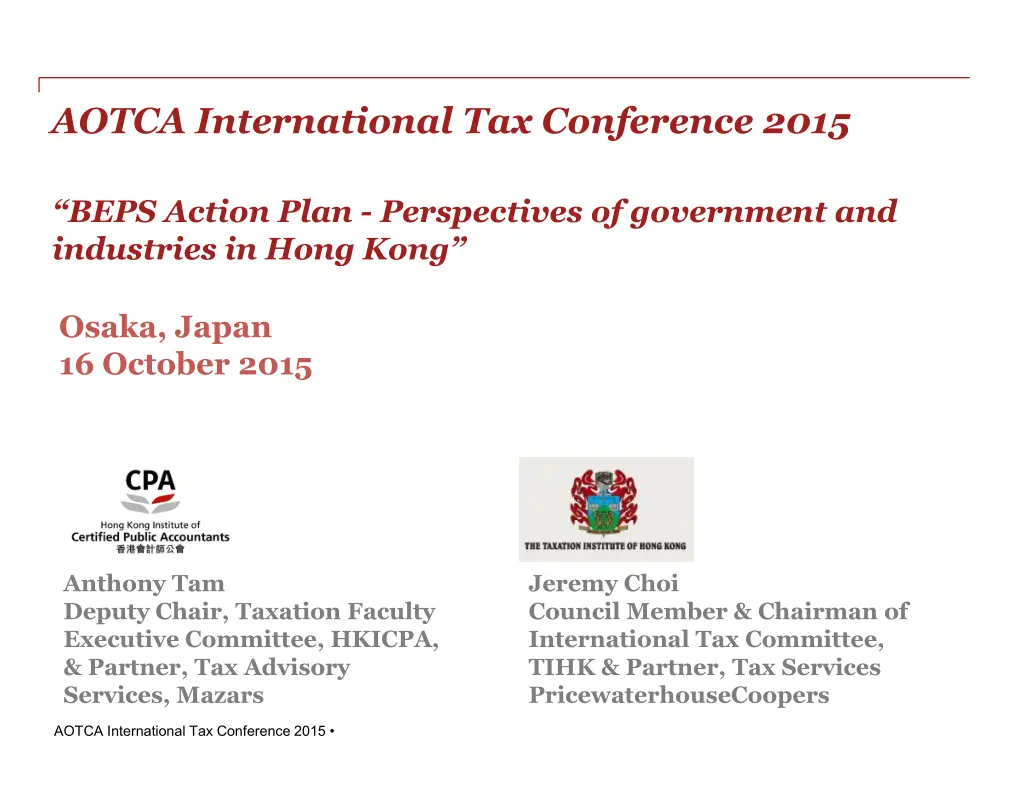
International Tax Conference 2015 BEPS Action Plan Perspectives
Explore the insights shared at the AOTCA International Tax Conference 2015 in Osaka regarding the BEPS Action Plan and its impact on Hong Kong. Delve into the perspectives of government officials and industry experts on addressing BEPS challenges, potential impacts on Hong Kong, and the proactive steps being considered to ensure tax compliance in the international arena.
Download Presentation

Please find below an Image/Link to download the presentation.
The content on the website is provided AS IS for your information and personal use only. It may not be sold, licensed, or shared on other websites without obtaining consent from the author. If you encounter any issues during the download, it is possible that the publisher has removed the file from their server.
You are allowed to download the files provided on this website for personal or commercial use, subject to the condition that they are used lawfully. All files are the property of their respective owners.
The content on the website is provided AS IS for your information and personal use only. It may not be sold, licensed, or shared on other websites without obtaining consent from the author.
E N D
Presentation Transcript
AOTCA International Tax Conference 2015 BEPS Action Plan - Perspectives of government and industries in Hong Kong Osaka, Japan 16 October 2015 Anthony Tam Deputy Chair, Taxation Faculty Executive Committee, HKICPA, & Partner, Tax Advisory Services, Mazars Jeremy Choi Council Member & Chairman of International Tax Committee, TIHK & Partner, Tax Services PricewaterhouseCoopers AOTCA International Tax Conference 2015
Introduction The BEPS project, while devised by the OECD, is mainly commissioned and driven by G20 Strong support from those European countries where addressing BEPS is a more imminent issue In Hong Kong, BEPS is a relatively less serious problem due to: the relatively low corporate tax rate (i.e. 16.5%) a simple tax system with limited tax incentives so the chance of abuse is relatively low Possible impact of the 15 BEPS final reports on Hong Kong: Unlikely to have tremendous impact in the short term Yet to see if any existing/potential Hong Kong treaty partners will adopt the new treaty rules recommended by the OECD e.g. the new anti-treaty abuse rules under Action 6 and the new PE definition under Action 7 Action 13 on TP documentation may affect Hong Kong companies even though Hong Kong does not have any plan to adopt the OECD s new TP documentation standard at the moment AOTCA International Tax Conference 2015 2
Introduction Subtle and gradual shift of Hong Kong tax authority s attitudes in some areas due to pressure from treaty partners/international community e.g. tightening the assessment of Hong Kong tax residency enquiries on offshore claim any overseas taxes paid/purpose of setting up a Hong Kong company, etc. source of royalty income need to look at all value creation activities Industry Government Reactive rather than proactive, with efforts focused on aligning HK tax system with international tax practice To review / modify existing HK outbound investment structures or cross-border supply chain models to make them BEPS compliant AOTCA International Tax Conference 2015 3
Major pressure points for Hong Kong Prevent treaty abuse Tightening of Hong Kong tax residency assessment by the Hong Kong tax authority (Action 6) Exchange of information (EoI) Liberalisation of Hong Kong s EoI framework Committed to automatic EoI (AEoI) by September 2018 Defending Hong Kong against the tax haven allegation Harmful tax practice Tax incentives are transparent and not ring-fenced (Action 5) Lack of specific & comprehensive transfer pricing (TP) legislation Transfer pricing No mandatory TP documentation requirement (Action 13) Revisit current HK outbound investments / supply chain models AOTCA International Tax Conference 2015 4
Prevent treaty abuse AOTCA International Tax Conference 2015
Case 1: Application of the Hong Kong-Indonesia tax treaty Issues to consider: PRC Parent No WHT on Dividends 1. Can HK Hold Co successfully apply for a HK tax resident certificate (HKTRC)? 100% HK Hold Co Dividends at 10% WHT 2. Indonesian domestic GAAR: Will the Indonesian tax authority deny treaty benefits because offshore dividends and capital gains are not subject to tax in Hong Kong? Dividends at 5% WHT 25% Indonesia Operating Co Gain from disposal of Indonesia OpCo exempt from tax in Indonesia if the exemption of using the immovable property to carrying on its business under the treaty applies > 50% of its asset value from immovable property in Indonesia domestic tax systems international tax rules and domestic tax laws Mining assets AOTCA International Tax Conference 2015 6
Case 1: Application of the Hong Kong-Indonesia tax treaty Issue 1: Can HK Hold Co successfully apply for a HK tax resident certificate (HKTRC)? Revised HKTRC application forms have to be used effective from 1 February 2015 Change in the assessing practice of the Hong Kong tax authority: Hong Kong incorporated companies do not automatically qualify as Hong Kong tax resident Requesting comprehensive information about the applicant s place of management and control as well as business operations in /outside Hong Kong Beyond assessment of Hong Kong tax residency: sufficient substance and economic activities in Hong Kong? beneficial owner status? any treaty abuse? AOTCA International Tax Conference 2015 6
Case 1: Application of the Hong Kong-Indonesia tax treaty Issue 2: Application of the Indonesian domestic GAAR Regulation 62 (issued in Nov 2009) sets out a list of criteria indicating there is no misuse of tax treaty, one of them being: income derived from Indonesia is subject to tax in the country of recipient Regulation 25 (issued in April 2010) further clarifies that the subject to tax test is still met if the income is subject to 0% tax rate or exempt from tax based on specific provisions Unclear whether the offshore dividends and non-taxable capital gains in Hong Kong satisfy the subject to tax test Repeated requests for clarification from the Hong Kong tax authority but no official reply from the Indonesian tax authority as yet AOTCA International Tax Conference 2015 8
Case 2: Claiming treaty benefit under a Hong Kong tax treaty Issues to consider: Spain Co (IP holder) 0% WHT on royalties 1. Will the Hong Kong tax authority accept Lux Co as the beneficial owner or regard Lux Co as a conduit? License of IP Royalty income of Lux Co can enjoy 80% tax exemption in Lux under certain conditions under the domestic IP regime (Note) 4.95% WHT on royalties Lux Co 2. Can the Hong Kong tax authority apply the domestic anti-avoidance rules regarding royalties to deny the treaty benefit? Sub-license of IP 3% WHT on royalties domestic tax systems international tax rules and domestic tax laws HK Co Note: Assuming the tax cost in respect of the royalties received by Lux Co in Luxembourg is minimal. AOTCA International Tax Conference 2015 9
Case 2: Claiming treaty benefit under a Hong Kong tax treaty Issue 1: Will the Hong Kong tax authority accept Lux Co as the beneficial owner or regard Lux Co as a conduit? Follow the OECD s commentary and interpretation on beneficial owner Factors to consider: No contractual or legal obligation to pass on the income received Unconstrained right to use and enjoy the income NOT an agent or a nominee NOT a conduit company Will consider if treaty benefit is available to the ultimate beneficial owner if the intermediary is being disregarded as a conduit AOTCA International Tax Conference 2015 10
Case 2: Claiming treaty benefit under a Hong Kong tax treaty Issue 2: Can the Hong Kong tax authority apply the domestic anti- avoidance rules regarding royalties to deny the treaty benefit? HK domestic WHT rate on royalties paid to non-residents: 4.95% However, under certain circumstances where the domestic anti-avoidance rule applies, the rate is 16.5% The Hong Kong tax authority s view: domestic GAAR can override treaty provisions regardless of whether there is an explicit provision in the treaty stating the same Reference: OECD Commentary on Article 1 Domestic anti- avoidance rules Treaty benefits AOTCA International Tax Conference 2015 11
Exchange of information AOTCA International Tax Conference 2015
Milestones in liberalising Hong Kongs EoI framework Latest global standard on EoI Sept 2018 To have first AEoI in respect of 2017 financial information March to Aug 2014 Signed 7 TIEAs, including the one with the US to implement FATCA Nov 2013 Being ranked as largely compliant in the OECD Phase 2 Peer Review report July 2013 Changed the law to enable Hong Kong to sign TIEA March 2010 Changed the law to remove the domestic tax interest requirement AOTCA International Tax Conference 2015 13
Harmful tax practice AOTCA International Tax Conference 2015
The blacklist issued by the European Commission On 17 June 2015, the European Commission (EC) published a list of 30 non- cooperative tax jurisdictions, including Hong Kong On 18 June 2015, the Hong Kong Government issued a press release saying that the listing is unilateral and procedural unfair Senior government officials have urged the EC to review the list to reflect the latest developments in Hong Kong The OECD issued an open letter in June confirming that jurisdictions fully/largely compliant with the Global Forum standard and committed to AEoI are cooperative TIHK also sent a letter to the European Union office in Hong Kong to express our concerns and explain Hong Kong s current situation AOTCA International Tax Conference 2015 3
The latest developments in Hong Kong Being ranked as largely compliant in the OECD Global Forum Peer Review Actively expanding its tax treaty and TIEA networks Tax treaty was signed with 3 of the 10 EU countries that put Hong Kong on their national blacklists (i.e. Italy, Portugal and Spain) Spain has removed Hong Kong from its blacklist as of 1 January 2015 Ratification process for tax treaty with Italy will be completed soon Already committed to implement AEoI by September 2018 Limited tax incentives and no preferential tax regimes that are non-transparent or ring-fenced AOTCA International Tax Conference 2015 15
Transfer pricing AOTCA International Tax Conference 2015
The government perspective - the current TP regime in Hong Kong Transfer pricing legislation Transfer pricing documentation No specific/comprehensive TP legislation TP documentation is not mandatory but encouraged Certain provisions in the domestic tax law and court cases may be relevant Current tax law only requires taxpayers to keep sufficient business records for ascertaining the assessable profits TP guidelines issued in the form of interpretation and practice note (DIPN 46) Information may be requested from taxpayers to justify their transfer prices General principle follow the OECD Transfer Pricing Guidelines unless they are incompatible with the domestic tax law Need to review in light of the new three-tiered TP documentation standard introduced by the OECD AOTCA International Tax Conference 2015 15
The industry perspective Hong Kong outbound investments Impact on overseas investment structures Dividends from overseas investment not taxed in Hong Kong Typical supply chain business/operation models Existing established models may be challenged Models need to be reviewed in light of BEPS AOTCA International Tax Conference 2015 18
A case study - The C Group Structure C Company (a US company) - - - Design Marketing Strategy (Centralize Marketing) Sourcing Strategy (Negotiation with suppliers) European Regional Distributor Hong Kong Source Company North American Distributor (Purchasing company, as well as distribution in Asia) Retails Retails Japan Distributor Hong Kong Distributor HK Service Support Co Japan retail Hong Kong retail Provide IT, admin support services China Sourcing Support Co China Distributor China retail Provide QC functions etc AOTCA International Tax Conference 2015 20
A case study - The C Group Sales Flow North American Distributor NPM > 5.5% NPM >10% Outside Supplies (Mostly in China) HK Sales European Distributor Source Co Sales NPM > 5.5% Asian Distributor including Japan, China, etc. NPM > 5.5% NPM (net profit margin) AOTCA International Tax Conference 2015 21
A case study - The C Group Products Flow Warehouse in USA (for North American Distribution) To Asian Distributors (Upon orders made) (operated by Logistic Company such as UPS) Warehouse in Shanghai (for Asian Distribution) Outside Chinese Suppliers To Chinese Distributors (operated by Logistic Company such as UPS) To Hong Kong Distributors Warehouse in Slovakia (for European Distribution) (operated by Logistic Company such as UPS) AOTCA International Tax Conference 2015 22
A case study The C Group A typical supply chain arrangement for many brand-name products in the US HK Source Co traps a big chunk of profits PE in China? Supported by TP? Check the box rules in the US? CFC Rules in the US? Impact by BEPS Action Plan? Action 7 Artificial avoidance of PE Action 13 Re-examine transfer pricing documentation AOTCA International Tax Conference 2015 19
The End Thank you AOTCA International Tax Conference 2015

